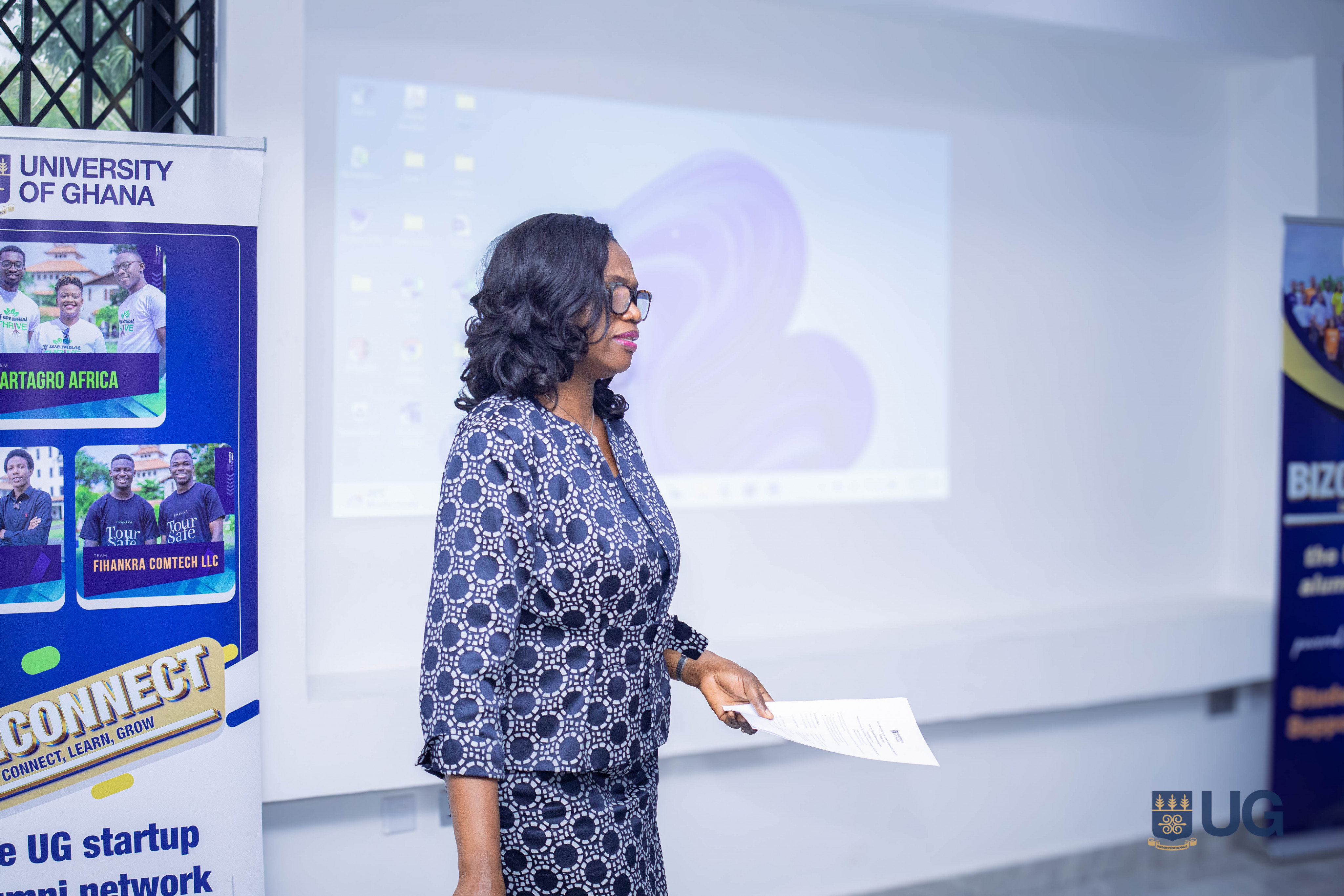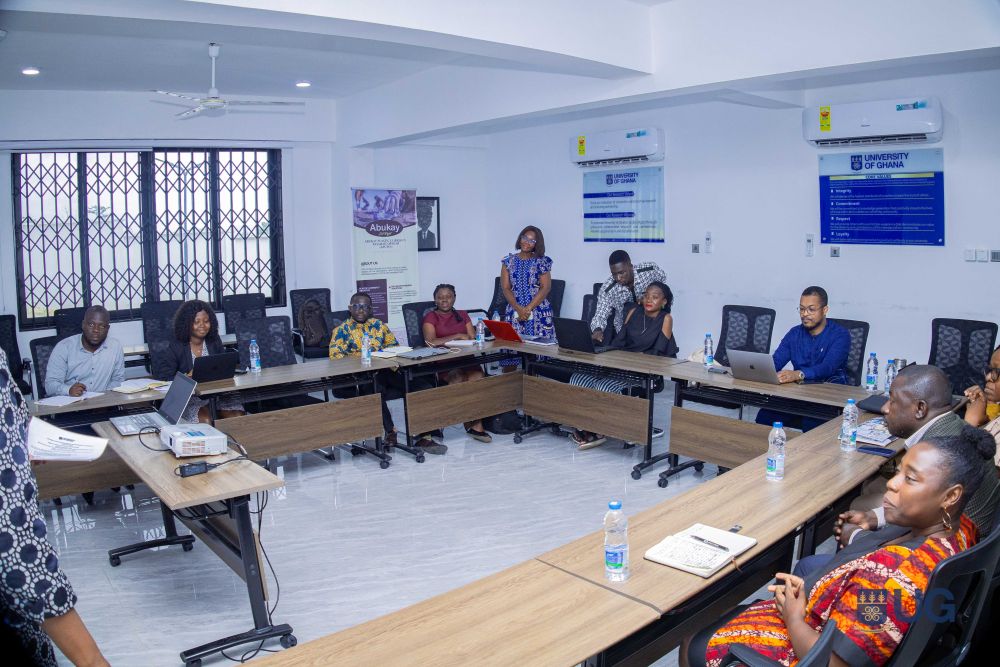The College of Education’s Grants Management Office, under the Research and Innovation Directorate (RID), recently held a peer-to-peer mentoring session on Collaborative Research Partnerships. The event, facilitated by the West African Centre for Cell Biology of Infectious Pathogens (WACCBIP), brought together researchers, fellows, and faculty members for an engaging and insightful exchange on strengthening research collaborations and enhancing success in grant acquisition.
The initiative formed part of the College’s and RID’s broader efforts to build research capacity, foster cross-disciplinary collaboration, and improve the competitiveness of researchers in attracting external funding. Participants gained practical insights into partnership building, proposal development, and strategies for sustaining productive research relationships.

Ms. Deborah Akyeampon, College of Education Grants Management Officer
The session began with a warm welcome from Ms. Deborah Akyeampon, the College’s Grants Management Officer, who expressed appreciation for the participants’ enthusiasm and highlighted the importance of such engagements in advancing the College’s research and innovation agenda.

Professor Nancy Quarshie, Deputy Director of the Research and Innovation Directorate
Delivering the opening remarks, Professor Nancy Quarshie, Deputy Director of the Research and Innovation Directorate, commended the WACCBIP team for their openness in sharing their expertise. She underscored the importance of peer learning and collaboration as essential drivers in nurturing a vibrant and sustainable research culture within the University of Ghana.
The main presentation was delivered by Dr. Peter Kojo Quashie, Deputy Director of Research at WACCBIP, who has secured substantial research funding from global agencies including the Bill and Melinda Gates Foundation and the Wellcome Trust. Dr. Quashie shared insights into WACCBIP’s success in securing competitive grants, noting that their achievements often stem from attention to “little nuances” rather than extraordinary measures. He encouraged researchers to understand the priorities of funding agencies, include preliminary data to demonstrate feasibility, and maintain clarity and simplicity in their writing. He also advised early-career researchers to start with smaller grants to build experience and credibility and to leverage professional networking platforms such as LinkedIn and ResearchGate to promote their work and expand their networks.
Expanding on the theme of collaboration, Dr. Lucas Amenga-Etego, Senior Research Fellow at WACCBIP, spoke on strategies for initiating and maintaining successful research partnerships. He emphasised the importance of identifying shared interests, building trust, and nurturing both formal and informal connections across disciplines and institutions to foster meaningful collaborations.
The final presentation, delivered by Ms. Sika Menka, Grants Manager at WACCBIP, focused on the grant application process. She offered a practical overview of both the written and unwritten expectations that often influence funding decisions, urging participants to align their proposals strategically with funders’ priorities while maintaining clarity, coherence, and strategic focus.

A cross-section of participants
The session concluded with an interactive discussion during which participants shared experiences, posed questions, and reflected on the insights gained. Many described the engagement as enlightening and timely, particularly in deepening their understanding of the intricacies of grant writing and collaborative research.
